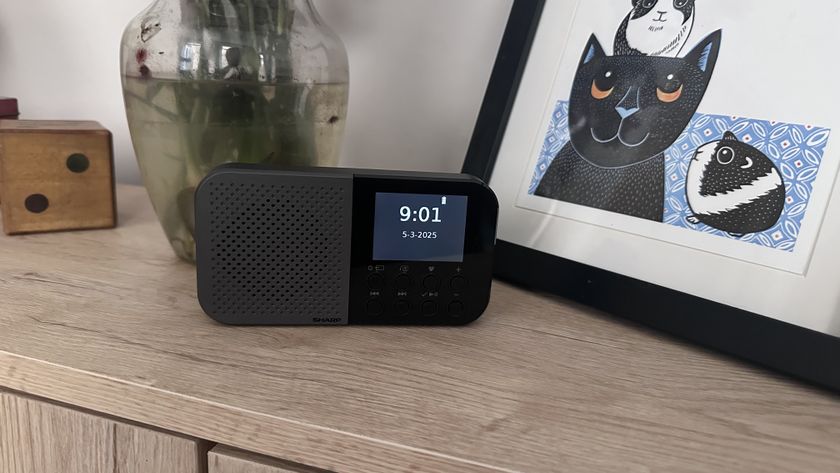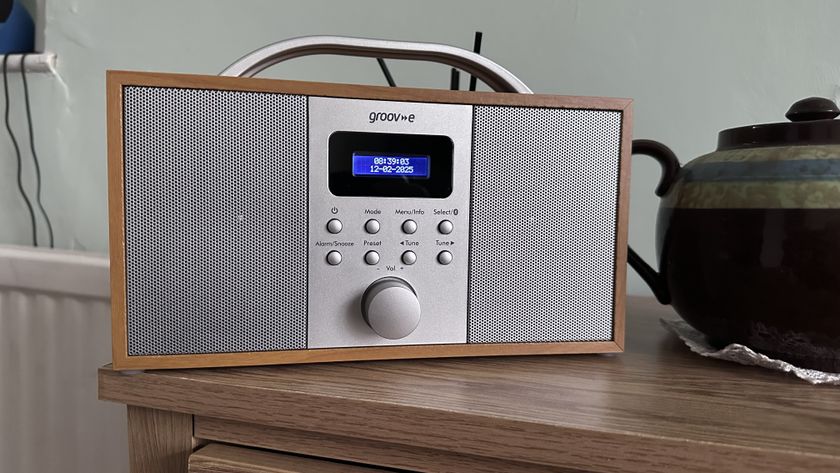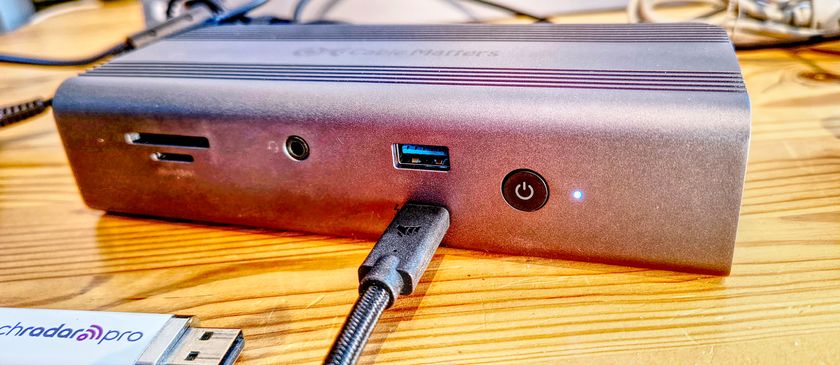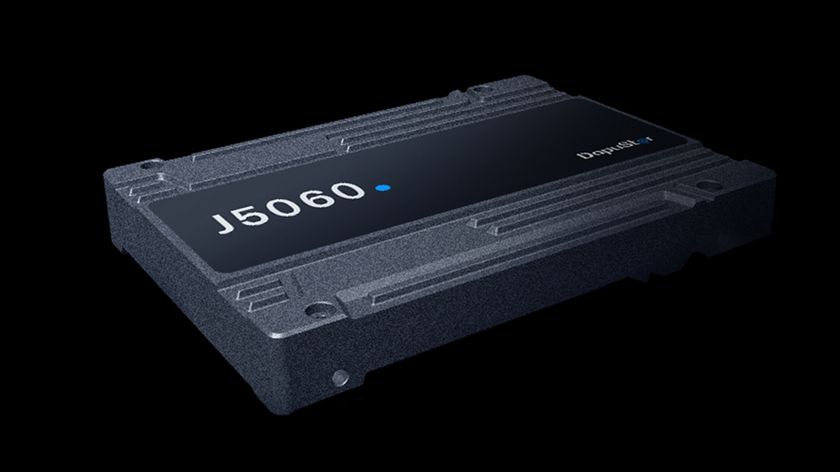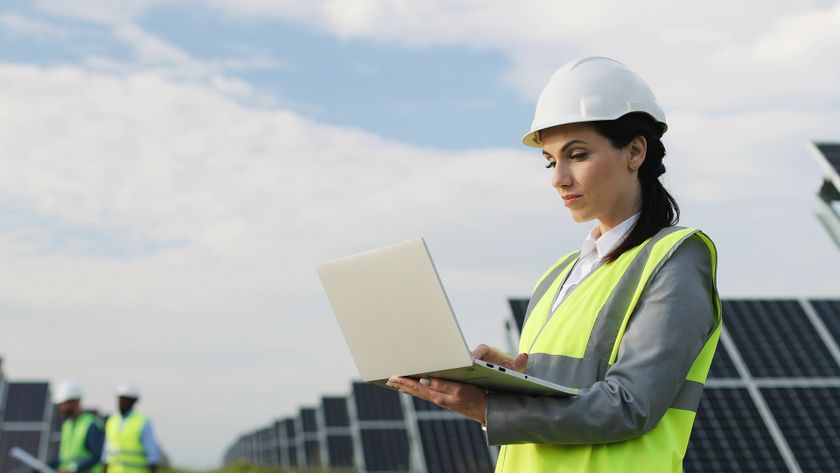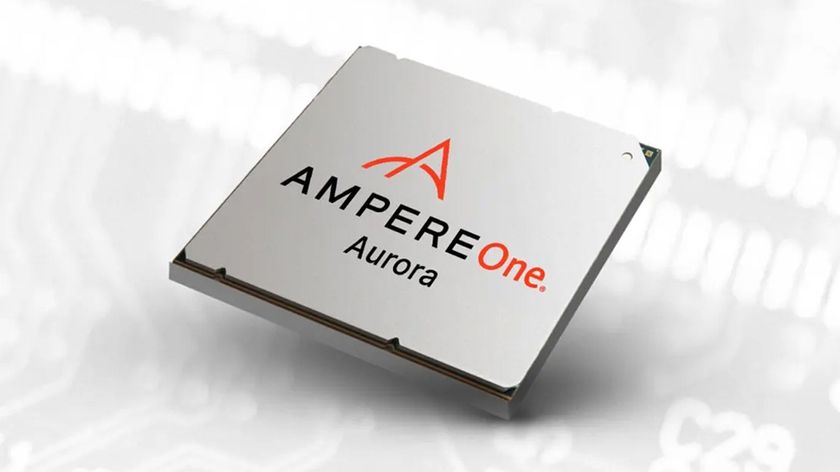Interview: The future of digital radio
DRDB boss Tony Moretta on DAB, DAB+ and internet radio
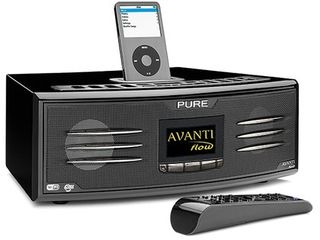
TechRadar: So when will we reach a point where DAB+ is a viable option for the UK?
Tony Moretta: Well if you get to a point where there are ten million DAB+ compatible radios out there, then a multiplex might say, "actually, somebody might want to launch a DAB+ service." You just have to make sure that you tell your listeners that if they have an old radio then they have to replace it, or whatever. It would also, incidentally, require a change in regulations from OFCOM to allow a broadcaster to broadcast in DAB+, as that is not allowed at the moment.
TechRadar: So you are broadly in agreement with Pure's strategy – of 'Connected Radio' devices that bring together Wi-Fi/internet radio with DAB (and DAB+ compatible) radio.
Tony Moretta: Well, we can't comment on Pure's strategy, but what we can say is that you are going to have different devices. If you look at TV set-top boxes, you can buy a cheap set-top box that will receive all the stations. Or you can get a more expensive set-top box with a hard drive that can record and offer listen-again type options and it might have an ethernet port for the BBC iPlayer (as Freesat has said they are going to do). And I think you will get the same with radio. You will be able to go and buy a cheap radio if you like (Netto, this month, for example, is offering a £15 DAB clock radio). Or you might want to go out and buy something like a Pure Evoke Flow, because you want to get stations that you are outside of coverage for.
The ideal situation would be, if you went to your radio and said "I want to listen to this station" and the radio looked for a DAB signal and if it couldn't find a DAB signal for the service you want then it looks for an available Wi-Fi connection. So, yes, we support Pure offering these 'connected radios' as part of its premium product range. But it is not the answer for everybody, because it is more of a premium product. But if you just want a radio to listen to in the kitchen while you are doing the ironing or whatever, then you are not necessarily going to want to buy an expensive 'connected radio'.
TechRadar: Why do you think broadcasters would struggle to monetise internet radio?
Tony Moretta: It is very basic. At the end of the day, advertisers are interested in who is listening to a station, what types of people are listening and how many are listening. Now, that is why, at the moment, analogue is still getting more revenue than digital, because more people are listening on analogue. That's fine. But with internet radio, it is a difficulty, because you are getting smaller and smaller groups of people listening, which might be less interesting to advertisers (some of them might be, of course, depending on what the niche is). I think
Get daily insight, inspiration and deals in your inbox
Sign up for breaking news, reviews, opinion, top tech deals, and more.
DAB is a good balance for the advertiser. You can have more stations. You can break the segment down more. Planet Rock, for example, who couldn't launch in analogue – because there is no capacity, there is no spectrum – I imagine they have very good information on their demographic and on the type of listeners they have with which they can go to advertisers with. So they can say to advertisers, "if you are looking to target ABC1 males between the ages of 30 and 45, then we have X hundred thousand listeners that fit that bill listening in every week."
So there is that problem with internet radio – that it is going more and more niche. And people talk about having the ability to listen in to foreign stations on internet radio and stuff like that. American advertisers advertising on a US country music station are not so interested in the fact that you are listening to the station in the UK, because you are unlikely to even be able to buy the products they are advertising. And likewise, British advertisers are not going to want to advertise on a US country music station, when the vast majority of British listeners are not listening to it!
Internet radio is useful for out-of-coverage stations – so listeners can tune into something such as Q Radio, for example, which currently only broadcasts in the London area - but it doesn't really matter what technology people are listening on. It is just that having the broadcast platform is the most practical.
The other thing is that this message of "10,000 radio stations at your fingertips" is also a total red herring, because as our research has shown, radio listeners are not promiscuous with their listening. They do not want to be listening to twenty or more different radio stations. It is a gimmick. Unless you are an ex-pat and want to listen in to your favourite stations from home, or whatever.
But the Wi-Fi bit – in terms of its functionality – for offering listen-again features, to make it easier to pull information from a programme, all of that makes total sense. Which is why I think of it as 'DAB plus Wi-Fi' rather than 'internet radio'. I mean, internet radio works on anybody's PC, but people have shown that they don't particularly listen to radio (in large numbers) on their PCs. In fact, in the latest RAJAR figures, the percentage of listeners tuning in to internet radio via their PCs went down! There is more digital TV listening than there is internet listening.
TechRadar: Finally, what about the DAB sales drop in late 2008?
Tony Moretta: In 2008 overall DAB sales were up around 3 per cent. Towards the end of last year we saw a dampening of growth and we did sell less DAB radios in December 2008 than in December 2007. Gfk, which track retail sales data for consumer electronics, highlighted DAB as one of the success stories of 2008. The downturn in DAB sales in 2008 occurred in the middle of the year, almost immediately following the economy taking a dive. Retailers were managing stock levels down, which damaged us a bit, with some manufacturers having to ship stock to retail all the way up to Christmas Eve last year.
But at the end of the day, for a year which started with all the stories of DAB channels disappearing, followed by all the business with Channel 4, to sell half a million DAB radios in December alone was quite an achievement, even though we failed to hit the original target which was set eighteen months ago. And nobody saw what has happened with the economy coming eighteen months ago! So we are still very pleased with DAB sales in 2008.
The major manufacturers – Pure, Roberts, Sony and so on – are all reporting that they had great Christmases, which means that they will keep investing in research and development. The retailers also see that DAB was a success story this last Christmas, which means that they will keep promoting it and giving it shelf-space and so on going forward. So we are happy with the growth.

